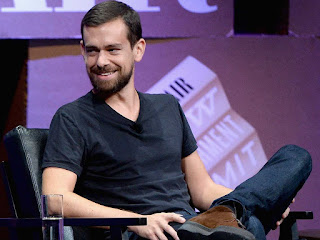I was originally going to (finally) finish that post thinking about the old idea of the Third World, when it was actually a meaningful concept. But something else happened that made me reflect on an important part of my work in communications.
I’m not about to say I’m the best Twitter hand in the world – but I’m pretty good, and I’m always learning how to use the medium better. I’m among the elite minority of Twitter users who has more followers than I follow. Which counts for something.
But Twitter went into an uproar this weekend with the apparent news that the platform would redesign its feed to resemble Facebook. The Twitter feed, so went the rumour, would be designed with a Facebook-like algorithm that sorted tweets according to their similarity to what you’ve engaged in the past.
It turned out not to be true. Well, it’s an exaggeration. Really, the “While You Were Away” feature is expanded. Now, the first time you log in to Twitter, a best-of feed for the time you spent away is the first feed you see. Refresh, and you’re back to ordinarily chronological.
But the social media rumour mill had taken hold, and the worst fears of Twitter’s power users came spilling out of everybody, with the hashtag #RIPTwitter.
One question: Why is a Facebook-style feed the death of Twitter?
A superficial answer is that the purely chronological presentation of tweets in the feed is ‘what makes Twitter special.’ Which is true. But plenty of things have plenty of essences-without-which-they’re-different-things-entirely. What about this essence of the Twitter feed caused this global conniption?
For the answer, look at what the chronological feed does, in contrast with Facebook’s similarity-sorting algorithm.
Facebook is an enormously profitable social networking site because the entire Facebook experience optimizes ad revenue. The more you interact with Facebook, the more it learns about what you like and what you engage with. Every action gives a further definition to your marketing profile, so advertisers know what to show you.
Facebook transforms you into a marketing micro-demographic with a single member. This makes an awful lot of money.
 |
| Facebook founder and always CEO Mark Zuckerberg. To always chase short-term profit simply prioritizes what's easiest and takes the least work over genuine transformative achievement. |
But socially speaking, it tends to create a rabbit hole. Barring crises, everyday Facebook use just shows you more of what you’ve already demonstrated you enjoy, or more that’s enough like it to fit seamlessly into what you already like.
That’s fun. It’s comfortable. It’s not interesting. It atrophies your creativity, your ability to explore and embrace what’s genuinely new to you.
Twitter’s value is in exposing people to novelty. Its chronological flow of posts doesn’t come from a filtered source, like Facebook’s algorithm does. It’s drawn from everywhere on your following list, showing you whatever happened to be posted most recently, and then letting you scroll back in time.
So you see views that disagree with your own. Weird retweets. Stuff that you may never have seen, that someone you thought was interesting enough to follow a few months or years ago felt like linking or posting. The new.
This is why Twitter can be so violent, filled with anger and bullying. When people are exposed to views that are radically different from their own, they may lash out in anger. And it’s possible to get an immediate response, which can fuel your anger. Then you could double down on your attack, and begin to enjoy the pain you bring to others.
We’re humans. We like being malicious, mean, and violent to people we dislike, or think are wrong or misguided.
This is the danger to the revolutionary public medium Twitter has become. It may not be accessible in every country, but Twitter is the closest thing we have to a global public square. The Twitter elites are people who use this public square to build their own audiences, reputations, and professional relationships.
The problem is that Twitter doesn’t make a whole lot of money. It requires the continual funding of venture capital firms and individuals to operate. These people aren’t typically interested in a planet-wide commons for communication.
Venture capital groups want to make large amounts of money extremely quickly. But Twitter isn’t about making money quickly. The medium is best used for patiently cultivating fandoms, audiences, professional networks, advocacy, and social movements. Returns on investment are very indirect, though these are the foundations of any productive activity, in business or otherwise.
More than that, the Twitter elite – the ones who join Twitter to build relationships, cultivate audiences, and take part in social movements – actively build Twitter’s value every day. They get the eyes of the masses on Twitter because they (not the ads and promoted tweets) are the most interesting things on it.
So here we have the nightmare scenario of the Twitter power user. The feed is changed to prioritize paid ads and promotions over the content that actually brings a mass audience to Twitter: the works of its power users.
It really is the people’s medium. Silence them, and you silence Twitter.


No comments:
Post a Comment